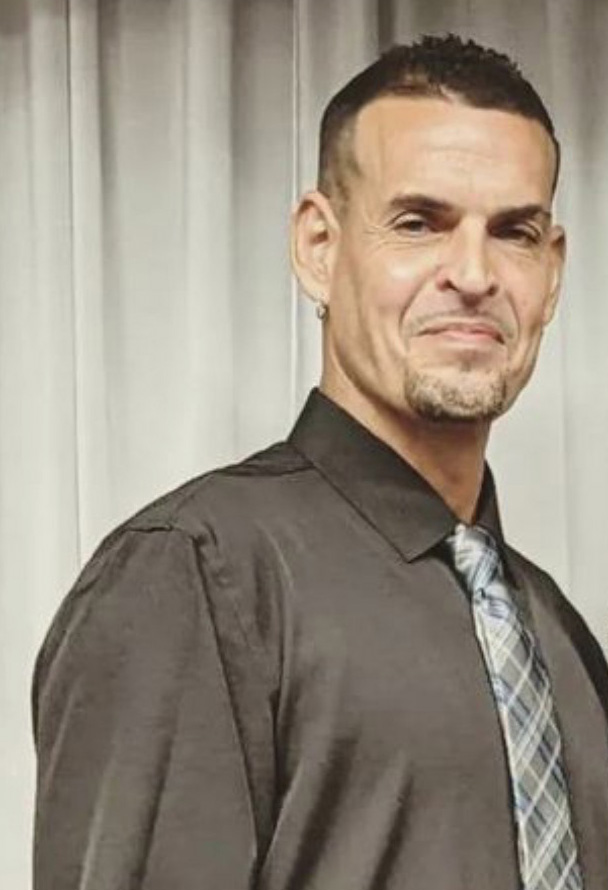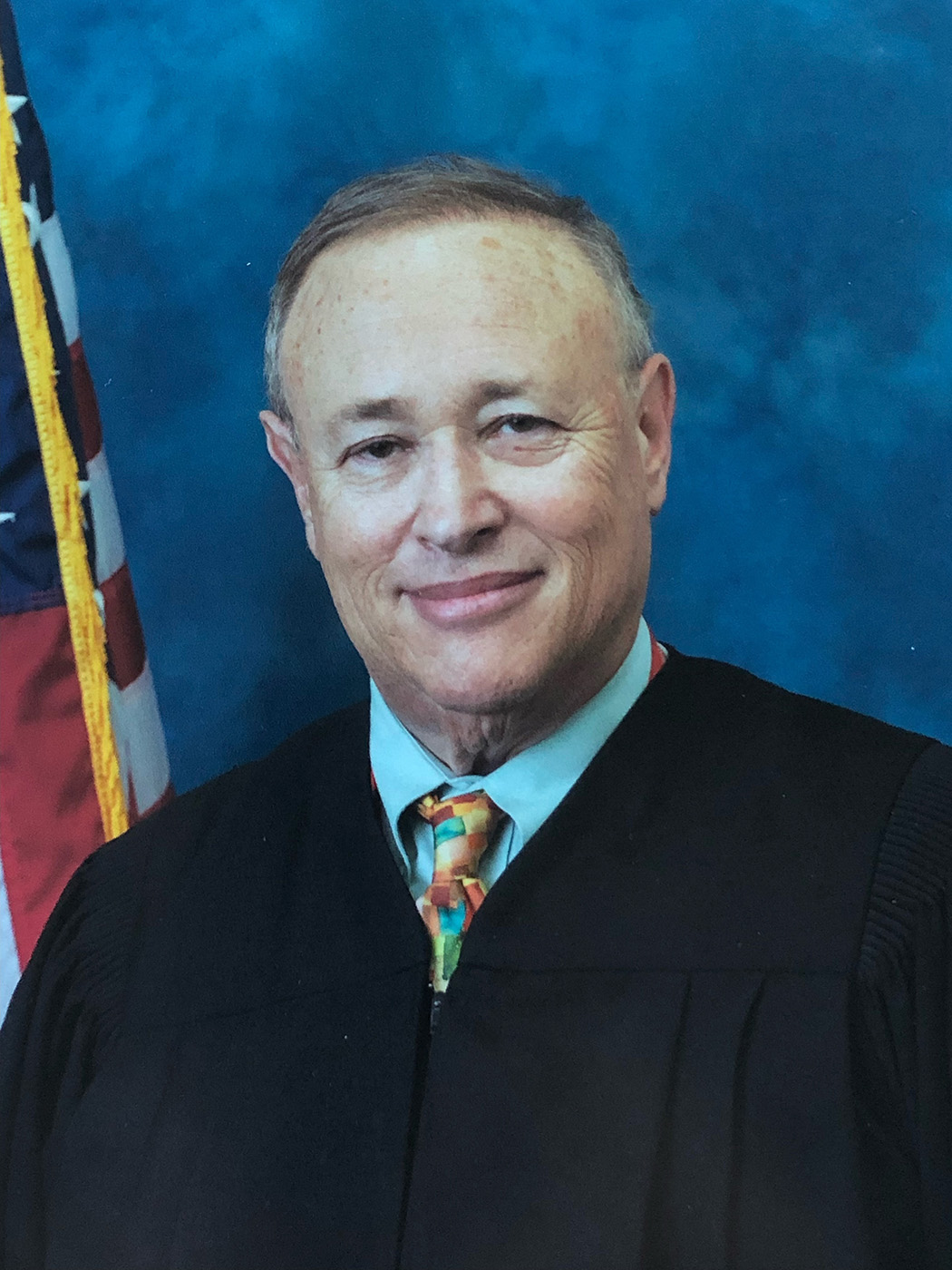Stockton Leads New Initiative to Help Those on Probation
Galloway, N.J. — “You want my story?”
Elimanuel Aviles-Barreto has been in a coma five times, clinically dead twice, stabbed twice and shot an inch down from his heart — all of those incidents tied to drug use and life on the streets.
His story may be a familiar one for those battling opioid addiction.
“It’s part of who I am, for better or worse. I don’t think I’m a horrible person. I’ve definitely made some mistakes,” said the 47-year-old from Long Branch. “I’ve been on my own since I was 15.”

Elimanuel Aviles-Barreto was recently hired by Stockton University to help expand the Judiciary Opportunities for Building Success (JOBS) program statewide. Aviles-Barreto is working to expand the program by creating a database of jobs at the state’s other colleges and universities.
Aviles-Barreto is one of the 130,000 New Jerseyans who are currently on probation – many for drug offenses.
He’s also the beneficiary of a new program called Judiciary Opportunities for Building Success (JOBS). The initiative was established by the New Jersey Presidents' Council (NJPC) when Stockton President Harvey Kesselman was the Chair of the NJPC. The program is funded by a $3 million grant from the state Department of Labor. One aspect is to provide workforce development training and employment opportunities for those who are on probation.
“This program will enhance our higher education mandate by helping New Jersey to tackle some of our community’s most intractable problems,” Kesselman said. “The goal is to make New Jersey a better place to live and work.”
Retired Superior Court Judge Mark Sandson piloted the program at the university with Kesselman and Marissa Levy, Stockton’s dean of the School of Social and Behavioral Sciences.
And now, with Aviles-Barreto’s help, it’s expanding to all the higher education institutions in the state.
“We tell our probation officers that it is no longer good enough to simply make sure that nobody gets caught committing crimes while on probation,” said Sandson, who spearheaded the movement to convert Atlantic County’s drug court into recovery court. “Now, we have to make sure that they have a job at a living wage with benefits by the time they successfully complete probation.”
Levy said most of New Jersey’s probationers are not violent offenders and are either involved with drug offenses or owe back child support.
“A lot of people have the misconception that this population is dangerous,” Levy said. “This is a population that deserves another chance. They aren’t going to be able to pay off their debt if they don’t have a job with a livable wage, and they can’t get jobs because of the stigma of being on probation.

Retired Superior Court Judge Mark Sandson, above, piloted the JOBS program at Stockton University with President Harvey Kesselman and Marissa Levy, Stockton’s dean of the School of Social and Behavioral Sciences.
“It creates a big vicious cycle and increases incarceration rates in New Jersey.”
Aviles-Barreto is one probationer stuck in that cycle of recidivism.
After leaving his mother’s home at 15, he got caught up in gangs and selling drugs to make money. He didn’t have problems taking drugs until after a serious motorcycle accident in which he “got banged up pretty bad.”
A doctor prescribed him OxyContin for pain and Xanax for anxiety.
“I got caught up in pain management. By the time I realized what was going on, I had a serious habit,” he said.
The habit became expensive and later turned to heroin as a cheaper alternative. That developed into a $300 to $400 a day habit, he said. Eventually, Aviles-Barreto hit the streets. He’s lived under the boardwalk in Long Branch and was homeless in Red Bank and Asbury Park.
At one point he was going to court in four different towns on charges of possession and driving while under the influence. Eventually he was able to get a job with a furniture store as an account manager, but he hurt his back and someone he worked with gave him a pain pill.
“The guy I was working with was getting high. It was very hard to get clean working with someone who was getting high every day,” he said.
After giving this friend a ride one day, Aviles-Barreto overdosed while driving and crashed into a light pole. Police found drugs in the truck, and he was back in the system again.
But Aviles-Barreto is now on probation and has been clean since 2021. His probation officer suggested he join the JOBS program, which provided him with training to become a Certified Associate in Project Management and eventually led to a job at Stockton just a few months ago.
Now he’s working to expand the JOBS program beyond Stockton by creating a database of jobs at the state’s other colleges and universities so that others on probation will be able to go to one centralized place.
“I think one of the biggest things that it gave me was confidence that I could do something different,” Aviles-Barreto said. “This is more like using your brain. It gave me a new outlook on life. I think it’s one of the most important things I’ve gotten out of the program.”
I think one of the biggest things (the program) gave me was confidence that I could do something different. ... It gave me a new outlook on life."Elimanuel Aviles-Barreto
“We are paying them $20 an hour, and we are hopefully going to hire directly from people who go to New Jersey colleges,” Sandson said.
Another aspect of JOBS is to provide probationers scholarships to attend New Jersey colleges.
Sandson and Kesselman both said establishing this relationship with higher education institutions will allow for studies of the program to prove it can work not only in New Jersey but nationwide.
“I am not aware of another higher education community banding together and partnering with a state judiciary to address these difficult issues touching upon one of our society’s most important problems,” Kesselman said. “We need to be a part of the solution.”
Aviles-Barreto is grateful for the opportunity. He just wants to do something “where I am giving back. I think it’s something that will keep me on the straight and narrow.”
“My story, I used to think that I was so different from everybody else,” he said. “But there are stories like mine every day on the streets. If my story could help somebody else…”
-- Story by Mark Melhorn
# # #
Media contacts:
Stacey Clapp
Director of Strategic Communications
Stacey.Clapp@stockton.edu
609-626-3645
609-412-8069
Mark Melhorn
Associate Director of News and Media Relations
Mark.Melhorn@stockton.edu
609-652-4593
609-569-6026


